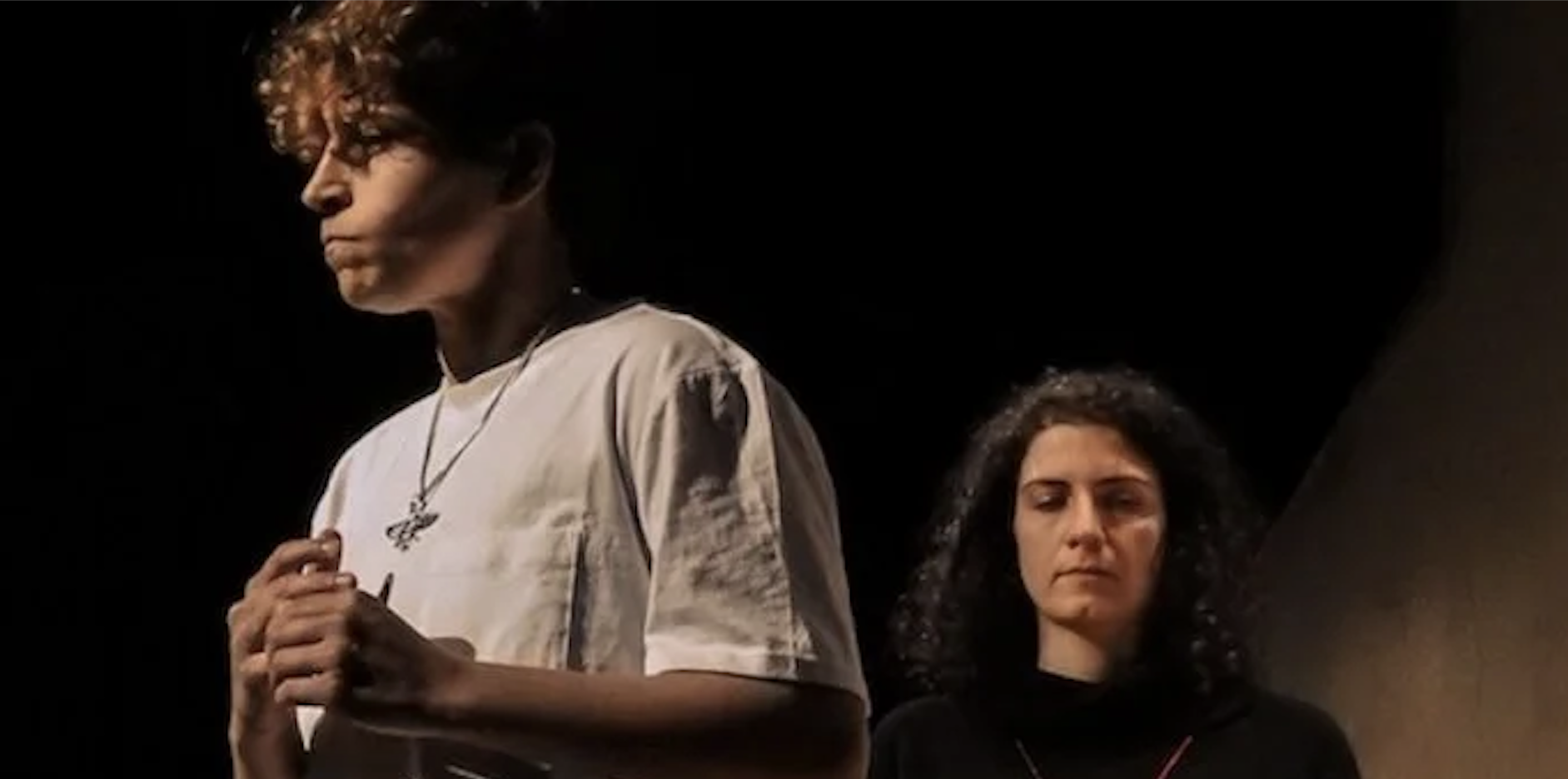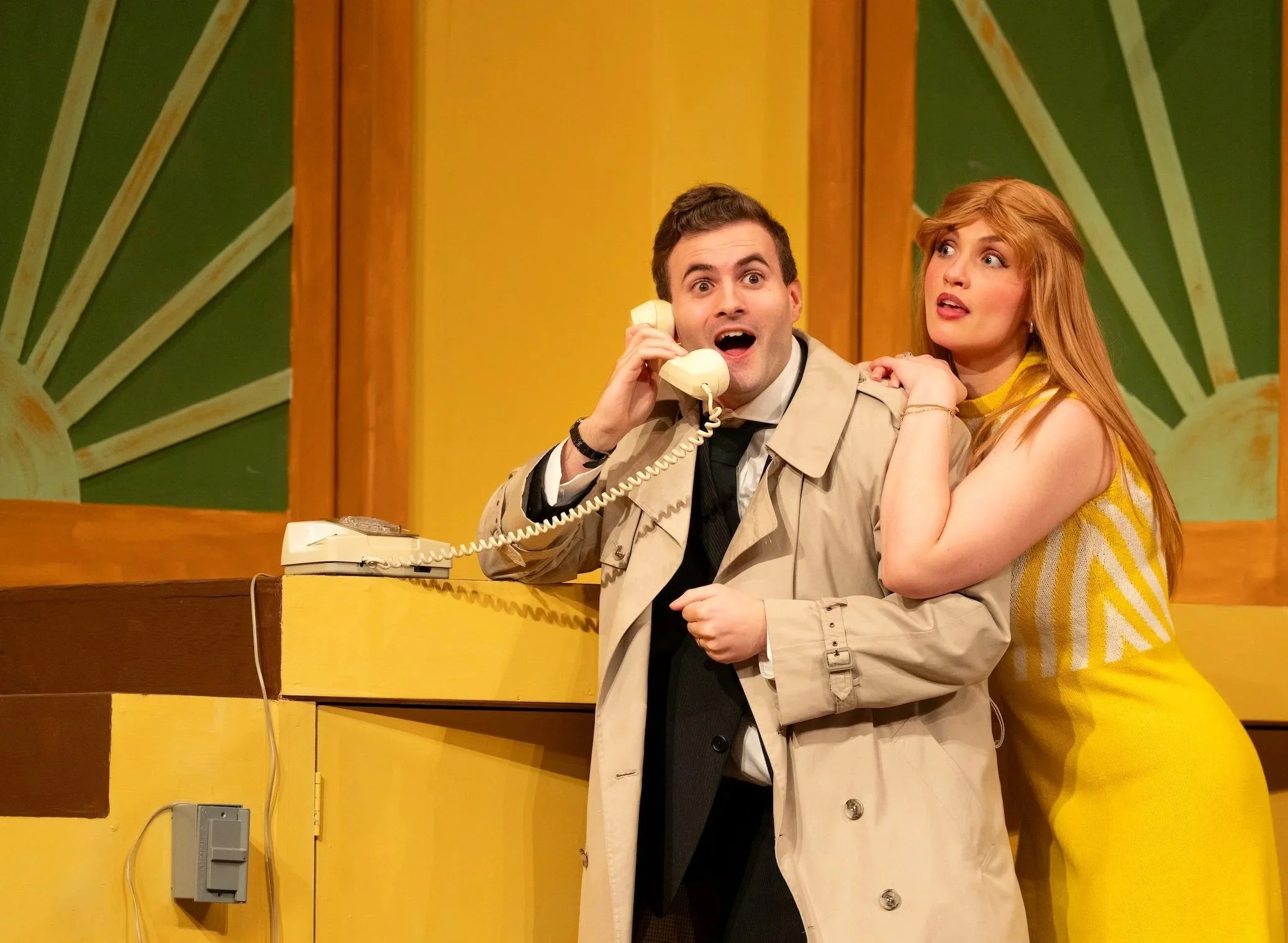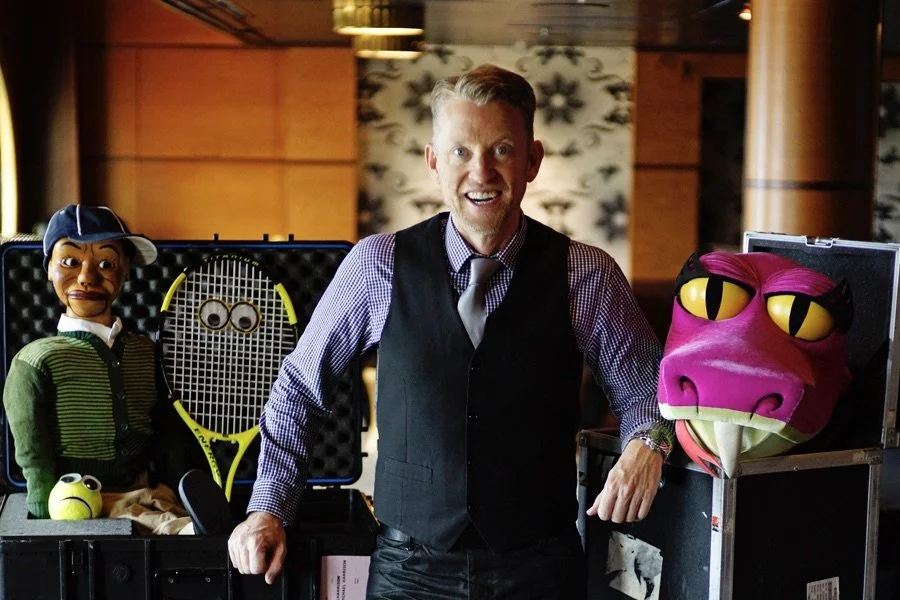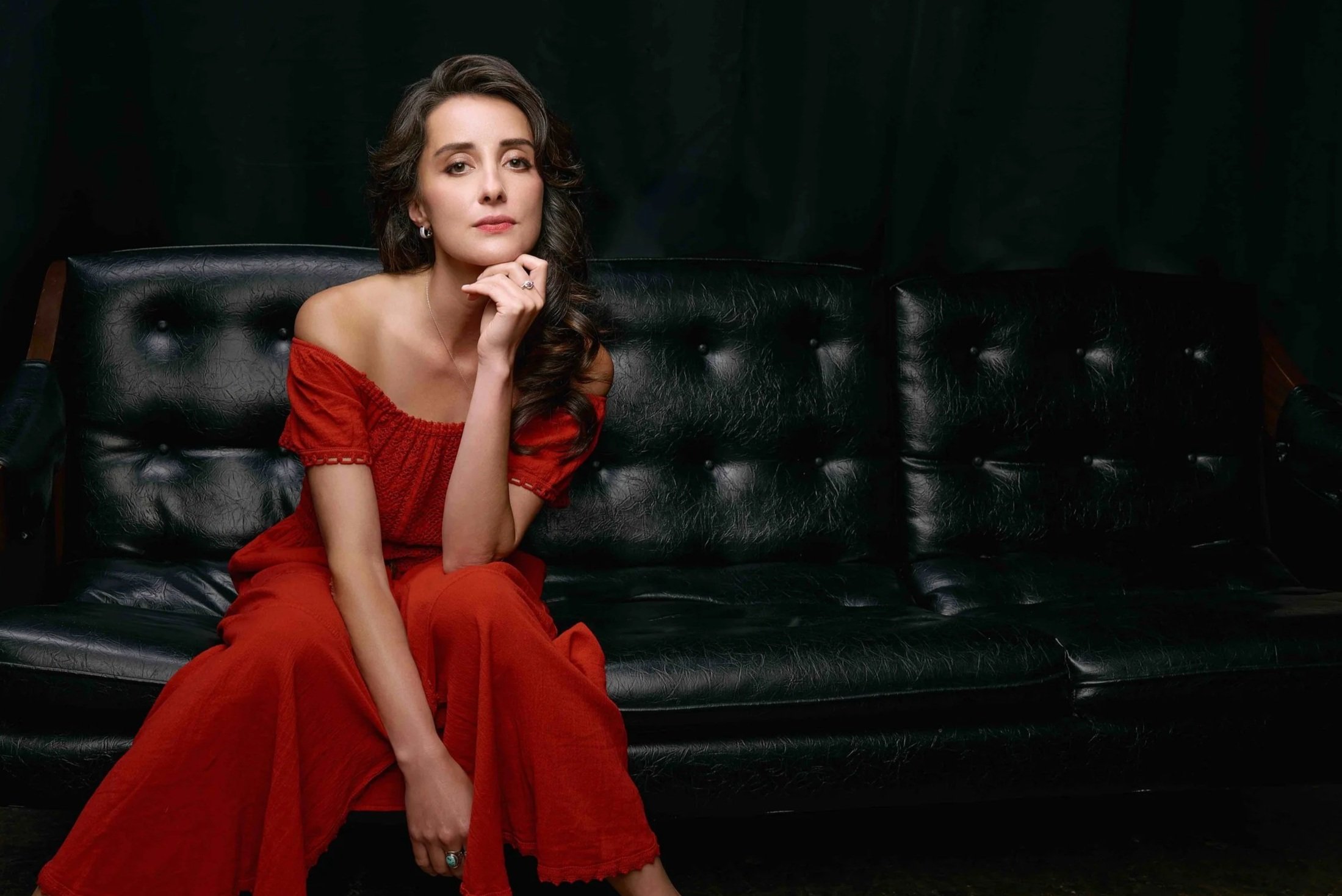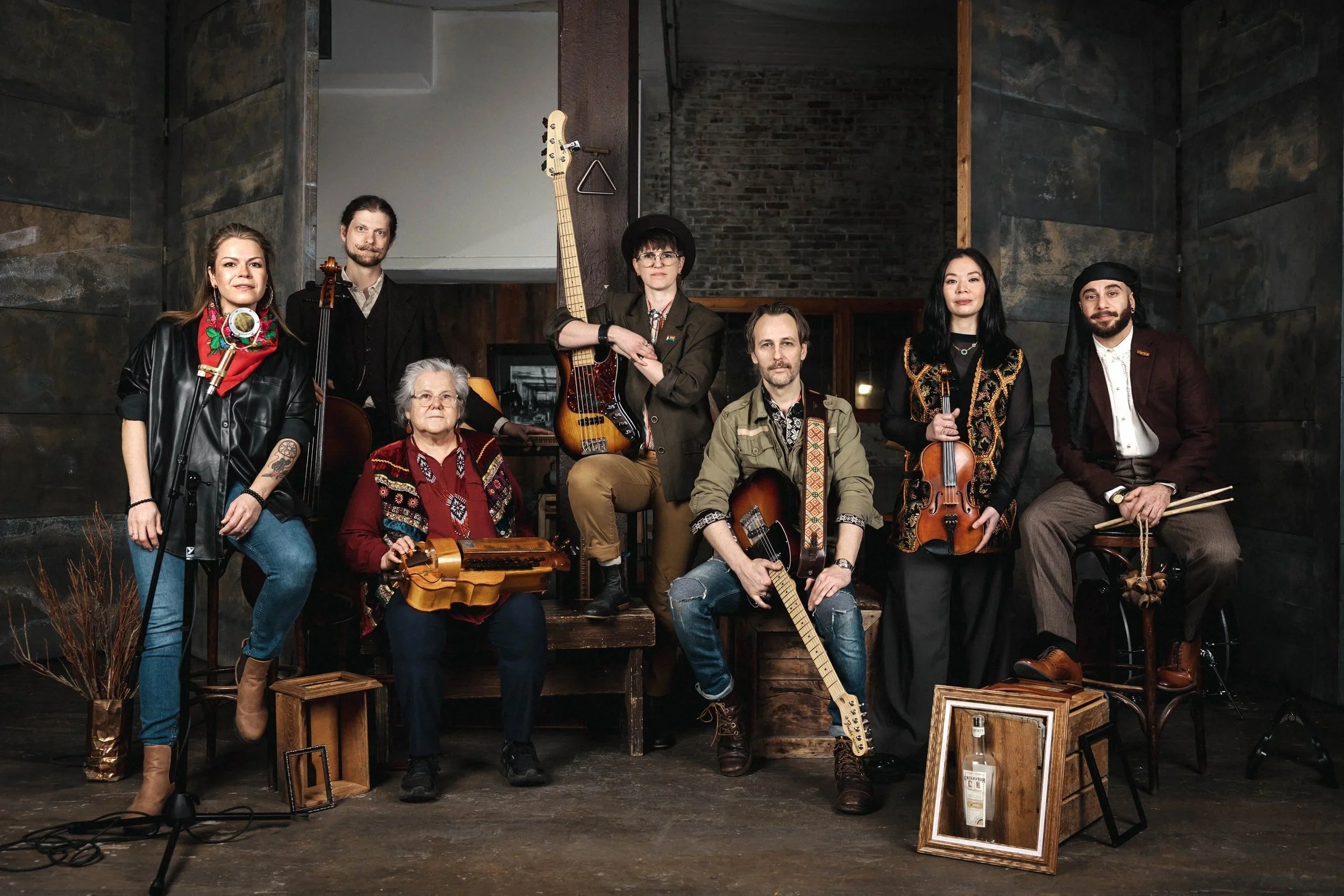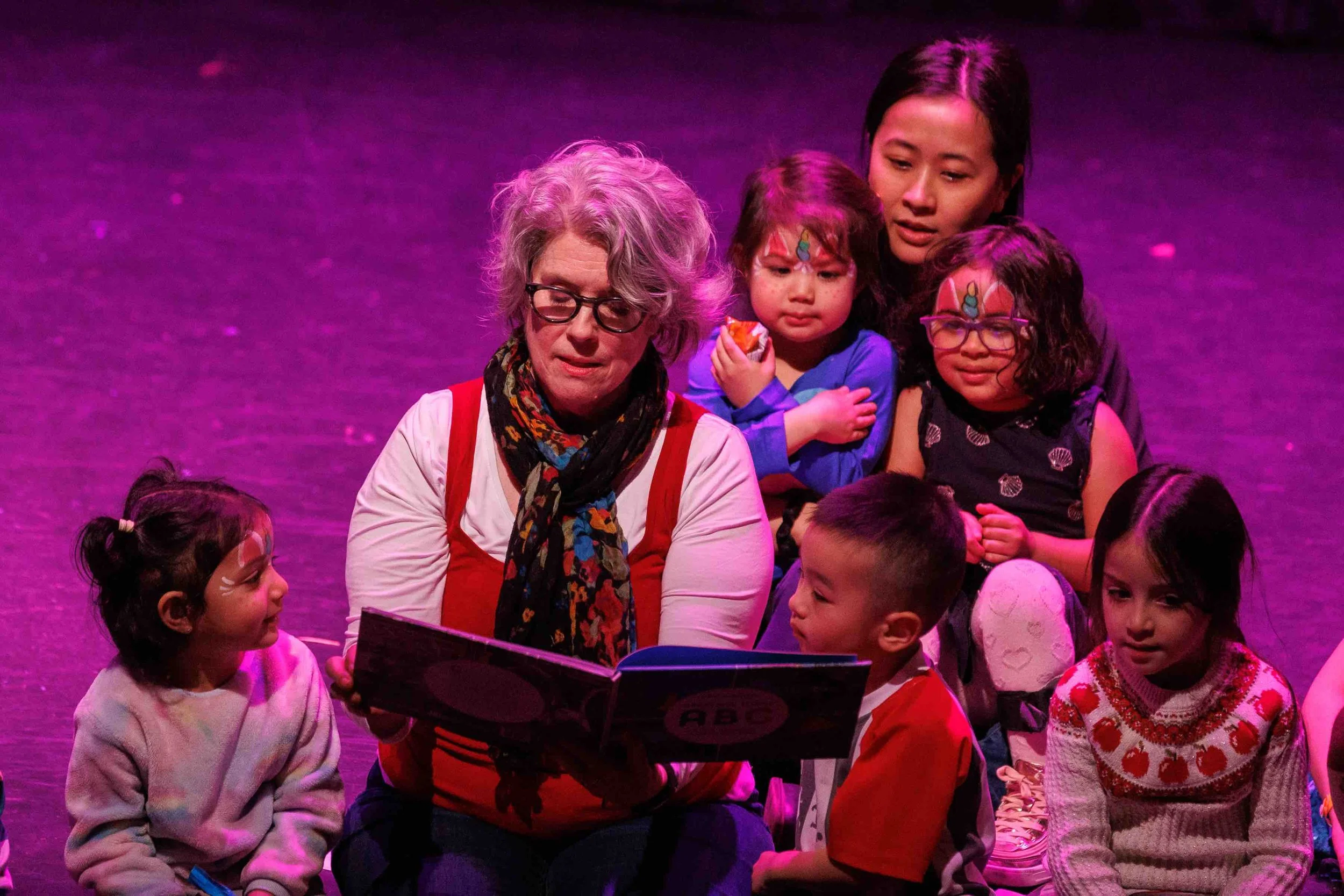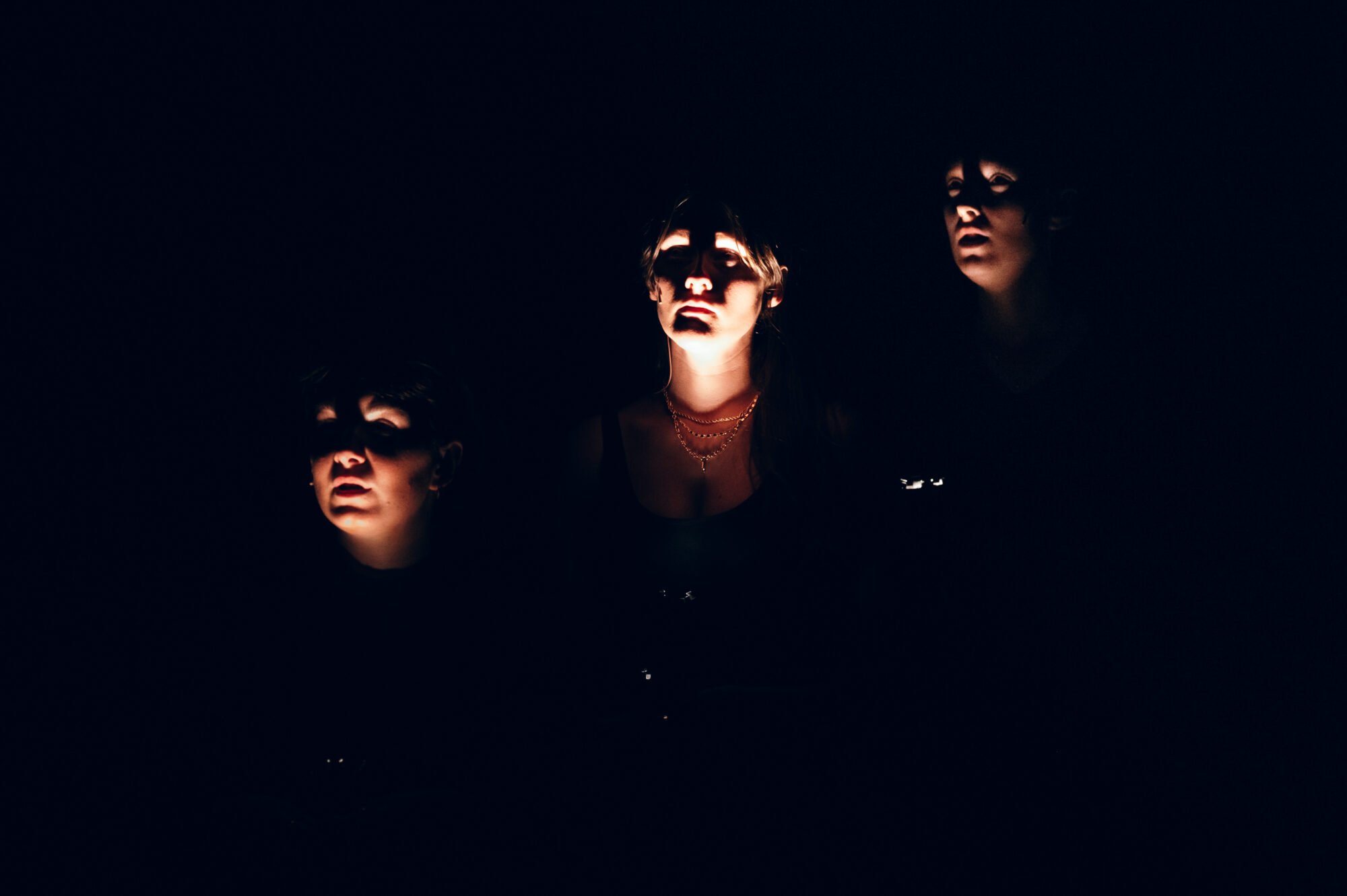Theatre review: Parifam takes an enigmatic look at repression and self-expression
Atmospheric new play about two women in exile from Iran revolves around duality and secrets
Donia Kash and Foojan Nixie Shabrang in Parifam. Photo by Paulina Vega Carrillo
The Cultch, Vancouver Asian Canadian Theatre, and Medusa Theatre present Parifam at the Historic Theatre to April 14
AN IMAGE OF TWO WOMEN birthing each other—intertwined creation and rebirth—appears in one of the paintings that Parifam, an architect by trade, meticulously pores over during her spare time.
After a string of relocations driven by both her professional endeavours and her exile from Iran, Parifam now resides in Montreal with her husband and son. It’s there that she reunites with her estranged childhood friend, Ramak. Their reunion is immediately shaded by the stark contrasts that have shaped their individual paths. Despite their differences, they are drawn to a shared vision: the establishment of a museum for Iranian heritage. Ramak’s proposal for a documentary centred around her past friend adds another layer to their uneasy collaboration, and is the catalyst for the unearthing of long-concealed, painful truths that bind the two women together.
For much of its runtime, Parifam unfolds like a puzzle, leaving you with the sensation of only grasping half the story. The most enigmatic element is its titular character, who’s simultaneously cryptic and unwaveringly brave. It's fitting, then, that this play revolves heavily around the theme of duality.
Parifam shows restless dedication and borderline obsession in completing her collection of paintings, but guards them closely from the eyes of those closest to her. When Ramak (Nazanin Shoja) proposes interviewing her for her film, she declines, citing a commitment to honesty—a virtue she accuses Ramak of lacking. When Parifam's son confronts her about a conversation he overheard, she deflects his questions at every turn.
Performer Foojan Nixie Shabrang colours the protagonist with an unapologetic air that’s potent, even as she repeatedly retreats through the labyrinthine stage into the confines of her family home’s basement. Each descent into her painting studio is shadowed by the presence of a menacing, unnamed figure (Arsham Farasat), who haunts her with physical and verbal taunts.
Meanwhile, the family’s son, Kian (played with convincing emotional energy by Donia Kash), treads cautiously, attempting to clandestinely peek at whatever is going on within his mom’s lair. For both him and the audience, the revelations come gradually, gaining clarity and heavy emotional weight during the play’s second half—along with Parifam’s determination.
Throughout this journey, one thing remains clear: Parifam's need to create. “My paintings aren’t as quiet as I am,” she declares. Her artwork brims with symbols that piece together the broader narrative.
Playwright Aki Yaghoubi and director Panthea Vatandoost’s creative decisions operate on a similar level, using symbols and recurring imagery that bring a textured, thematic depth to the narrative. Parjad Sharifi’s set is full of stairs, windows, doors, and mirrors, feeling modern and ancient, private and communal at the same time. Parifam’s studio is placed at the foreground, but it still somehow feels like a private corner. Cameras and live projection effectively feed this visual representation of secrecy and revelation.
Certain stylistic choices, while intriguing, can feel somewhat cumbersome at times. The recurring slow and dark scene transitions that sustain the dreamlike atmosphere of the initial half begin to drag as the narrative picks up speed. Nonetheless, Ruby Singh's compositions and sound design engage the senses with gorgeously evocative and melancholy soundscapes during these transitions.
As revelations begin to surface, the play takes on arresting new dimension when Parifam and Ramak, both clad in all-black, materialize as mirror images on stage. Shabrang and Shoja's performances convey a believably complex chemistry between their characters. Through their fraught and charged interactions, the show's more profound themes around self-expression and repression come into sharp focus. Much like Parifam's own convictions, those of this production, while intentionally (and occasionally frustratingly) murky, are undeniably compelling. ![]()


